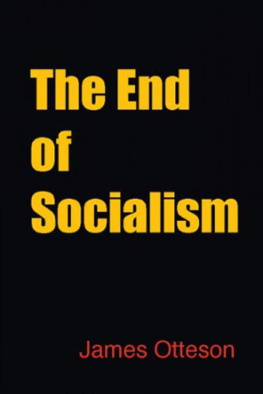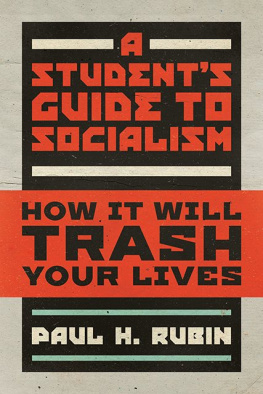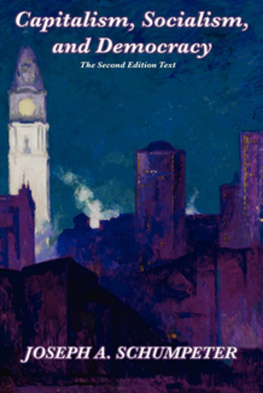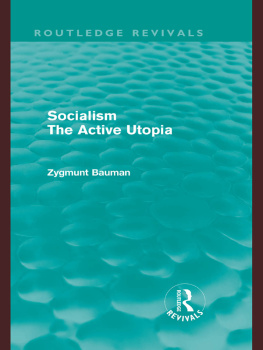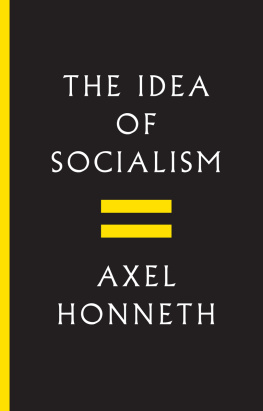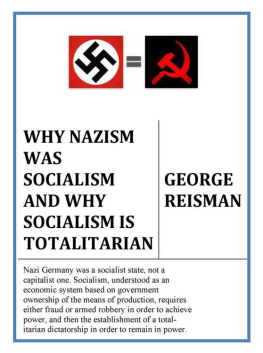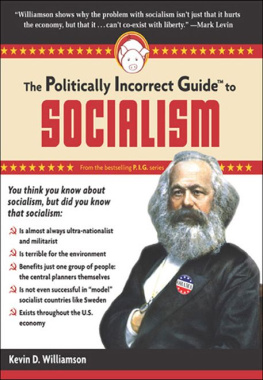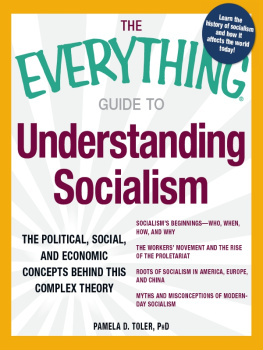Acknowledgments
In writing this book, I have benefited from reading the work of and having conversations with many people. They include historical figures such as Aristotle, Frdric Bastiat, Adam Ferguson, Hume, Kant, Locke, Marx, Mill, Albert Jay Nock, Rousseau, and Adam Smith. They also include contemporaries (or near-contemporaries) such as Armen Alchien, Elizabeth Anderson, Richard Arneson, Bradley Birzer, James Buchanan, Art Carden, Henry Clark, Ronald Coase, G. A. Cohen, Harold Demsetz, Douglas Den Uyl, Ronald Dworkin, Richard Epstein, Gerald Gaus, Ryan Hanley, Friedrich Hayek, Max Hocutt, Daniel Klein, Will Kymlicka, Mark LeBar, Loren Lomasky, James McCawley, Deirdre McCloskey, Michael Munger, Robert Nozick, Maria Paganelli, Mark Pennington, Steven Pinker, Benjamin Powell, Douglas Rasmussen, John Rawls, Richard Richards, Russell Roberts, David Rose, William Ruger, Michael Sandel, Debra Satz, David Schmidtz, Peter Singer, Jason Sorens, Thomas Sowell, Cass Sunstein, John Tomasi, and Peter Vallentyne. A special note of thanks goes to some extraordinary students, including Noah Greenfield, who read and commented on the entire manuscript, as well as Josh Halpern, Shmuel Lamm, Mikey Stone, and many other students at Yeshiva University and New York University with whom I discussed ideas in this book. Two anonymous reviewers for Cambridge University Press provided numerous insightful and valuable suggestions, which I have incorporated liberally. I express my sincere gratitude to them all. Of course, I am responsible for any errors.
I would also like to thank my editor at Cambridge University Press, Robert Dreesen, for his encouragement and support. Thanks also go to Beatrice Rehl of Cambridge University Press, who first convinced me I should work on this project.
I gratefully acknowledge the following institutions that provided invaluable and generous support during the time it took me to write this book: the Earhart Foundation, the Fund for American Studies, the Hertog Foundation, and the William E. Simon Foundation.
Above all else, I would like to thank my familymy beloved Katharine, Victoria, James, Joseph, and Georgefor their love, patience, and unfailing support. In this, as in everything else, they are the sine qua non .
What Socialism and Capitalism Are
Introduction
The place to begin any systematic discussion of capitalism and socialism is by specifying what we mean by the terms. Each has meant different things to different people, and each of them has considerable baggagemostly negative. Today, the term capitalist is usually meant as a pejorative epithet, carrying with it the connotation that someone is greedy and selfish, uncaring toward others, and probably indifferent (or worse) toward values such as fairness and equality. Similarly, being a socialist means allying oneself with unrealistic utopian schemes and failed or dictatorial political experiments.
Yet two recent events have thrust both terms back into public discussion: the election of Barack Obama as president of the United States in 2008 and the global economic recession that began around the same time. President Obamas election has brought with it numerous claims not only that he himself is a (perhaps closet) socialist, but also that his policies, while nominally liberal, are really socialist at heart. Those who claim this do not mean it as a compliment. And the global recession is seen by many as a failureand thus an indictmentof capitalism, perhaps even its death knell. Both sets of claims, as well as responses and counterclaims, are easy to find. They are often unproductive, however, in part because people mean so many different things by the terms they use. Yet there can be little hope of fruitful discussion, much less unity, if people cannot agree on the definitions of the central terms they use.
Some recent defenders cultural institutions. There are other considerations one might make about the choice of terminology, but, as Caesar said when he crossed the Rubicon, alea iacta est the die is cast. The terms capitalism and socialism have, for better or worse, become the preferred terms, and so I shall use them.
Definitions
Socialisms traditional definition is the public ownership of the means of production. with it, the fairness, equality, and community of socialism can, it is hoped, be achieved.
By contrast, socialisms antithesiscapitalismhas at its core decentralized political-economic decision making. Its preferred values might be justice, liberty, and individuality (again, properly defined), but it holds that allowing individuals or voluntary groups of individuals to make political-economic decisions for themselves with little state interference is what enables the realization of the values it holds dear. Thus, the socialist-inclined position tends to favor planned patterns of social orderor the correction of unplanned patternsaccording to principles and authority centrally derived and administered, whereas the capitalist-inclined position tends to favor unplanned or spontaneous patterns of social order that are deferential to what individuals and voluntary groups decide to do and skeptical of what third-parties might like to mandate or nudge them to do. I argue that this is the real difference between socialism and capitalism.
My working definition of socialism, then, is a system of political economy that prefers centralized political-economic decision making to achieve its ends. Other things being equal, the more fully an economy is centralizedwhether through outright ownership or through the more common means today of command-and-control policies of dirigisme the more fully is the economy socialist. Capitalism, by contrast, is a system of political economy that prefers decentralized political-economic decision making to achieve its ends. The more decentralized an economy is in this sense, the more capitalist it is.
It is important to emphasize that my goal is to describe a cluster of features that versions of these two competing systems of political economy share. Because their respective features fall along continua, it is quite possible that some particular positions or policies (or figures or political parties) will fall partially in one and partially in the other, or that persons of good faith might disagree about how to categorize a particular position, policy, and so on. For that reason, it will often be useful to think of socialist-inclined and capitalist-inclined policies or positions, which indicate the tendencies of the particular policies or positions under discussion.
Elaboration
We can flesh out the natures of, and differences between, socialism and capitalism by considering three separate aspects: their respective (1) conceptions of human nature, (2) central values, and (3) public policies entailed, or at least suggested, by (1) and (2).
Human Nature.
In each pair of the following aspects of human nature, socialist-inclined policy tends to advocate the first characteristic and capitalist-inclined policy advocates the second:
altruistic vs. self-interested
cosmopolitan vs. localized
unconstrained vs. constrained
Although socialism does not deny that human beings are motivated by self-interest, it nevertheless believes in human altruism in one, or in some combination, of the following ways: people are at least as altruistic as they are self-interested; people can, under the proper institutions, develop altruisticis able to face the criticism that its prescriptions are inconsistent with human nature by responding: perhaps with human nature as it currently appears, but not necessarily as it might be constituted.
By contrast, capitalism tends toward the latter in each of the three aspects. Thus, it does not deny that human beings act out of altruism, yet it nevertheless holds one or some combination

